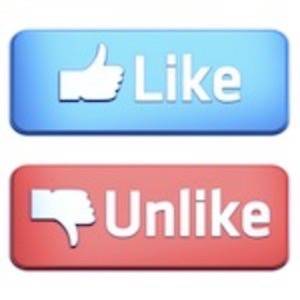How many users does Facebook really have? And does it matter?
We take it as gospel at some point this summer Facebook will cross the billion-user mark, but rarely do we stop and note that the milestone comes with the “according to Facebook” caveat. Yes, the company acknowledged before the IPO that as many as 6% of its users are fake, duplicate, or otherwise unqualified accounts. (Which is not insignificant: 6% of the 900 million users Facebook claimed at the time of the IPO would work out to 54 million users.) But how do we know if the base number is accurate, short of implicitly trusting Facebook?

Wall Street investors – many of whom were burned in last month’s initial public offering – are starting to raise those questions, but it seems like sour grapes. Before the IPO, these same investors downplayed the fact that as many as one of every 20 Facebook accounts was a fake, stressing that what mattered was the number of active users, as well as Facebook’s plans to monetize those users.
Now comes news that the number of unique Facebook users dropped slightly between April and May, which is telling, given how many headlines the dominant social network drew in May. But more important is the decline during the past six months: The number of unique visitors has fallen 4.8% in that time frame.
Now that Facebook shares are slumping, investors are clinging to anything they can when it comes to bashing the company. However, Richard Saintvilus of TheStreet.com says investors (not to mention anyone declaring the company dead less than one month after it went public) need to go back to the basics.
“The biggest criticism that Facebook receives on Wall Street is its perceived inability to monetize its user base. So to me that means the company is only hurting itself if it is erroneously allowing unqualified users or if it is not truly representing what the 900 million means,” Saintvilus wrote. “The fact of the matter is, Facebook gains nothing by ‘inflating’ its user base. Any number higher than what is factual only adds increased pressure on the company — one that is already dealing with credibility issues surrounding its business model and its perceived inability to monetize its user base.”
It’s inevitable that as Facebook conquers more markets, it will eventually hit a saturation point, and growth in the total number of users will slow. The biggest challenge for Facebook to keep it relevant to its shareholders and its users is to focus on the unique monthly visitors.
That could be problematic. Anecdotally, I’m hearing from more and more people who say they are giving up on Facebook or taking breaks from the service by putting their accounts on hold. I’ve been having an email back-and-forth with a friend from my grad school days who recently announced (on Facebook) that she was putting her account on hold for a while. Her reasoning is similar to the reason I’ve heard from other people who are considering taking a break from being one of Facebook’s millions of unique monthly visitors.
“I have major qualms about losing touch with people I care about and learn from and all that stuff. Major qualms,” she wrote. “But I’ve come to think of Facebook as something that I only need because I have it, and if I didn’t have it, I wouldn’t even know I needed it.”
Those major qualms could end up being a major problem for Facebook.
















